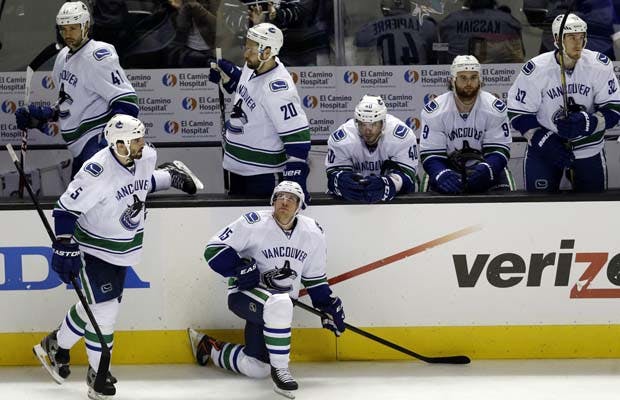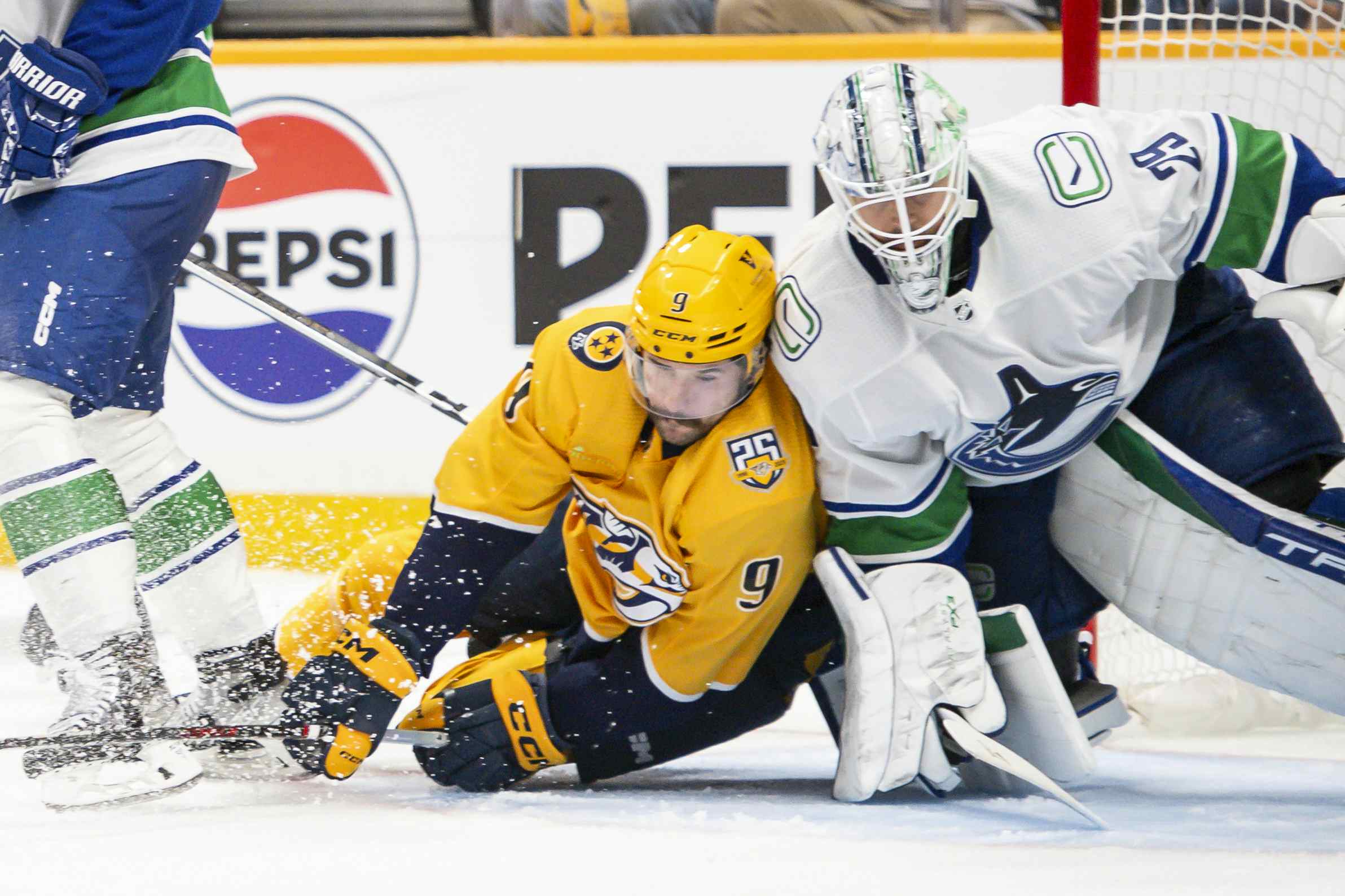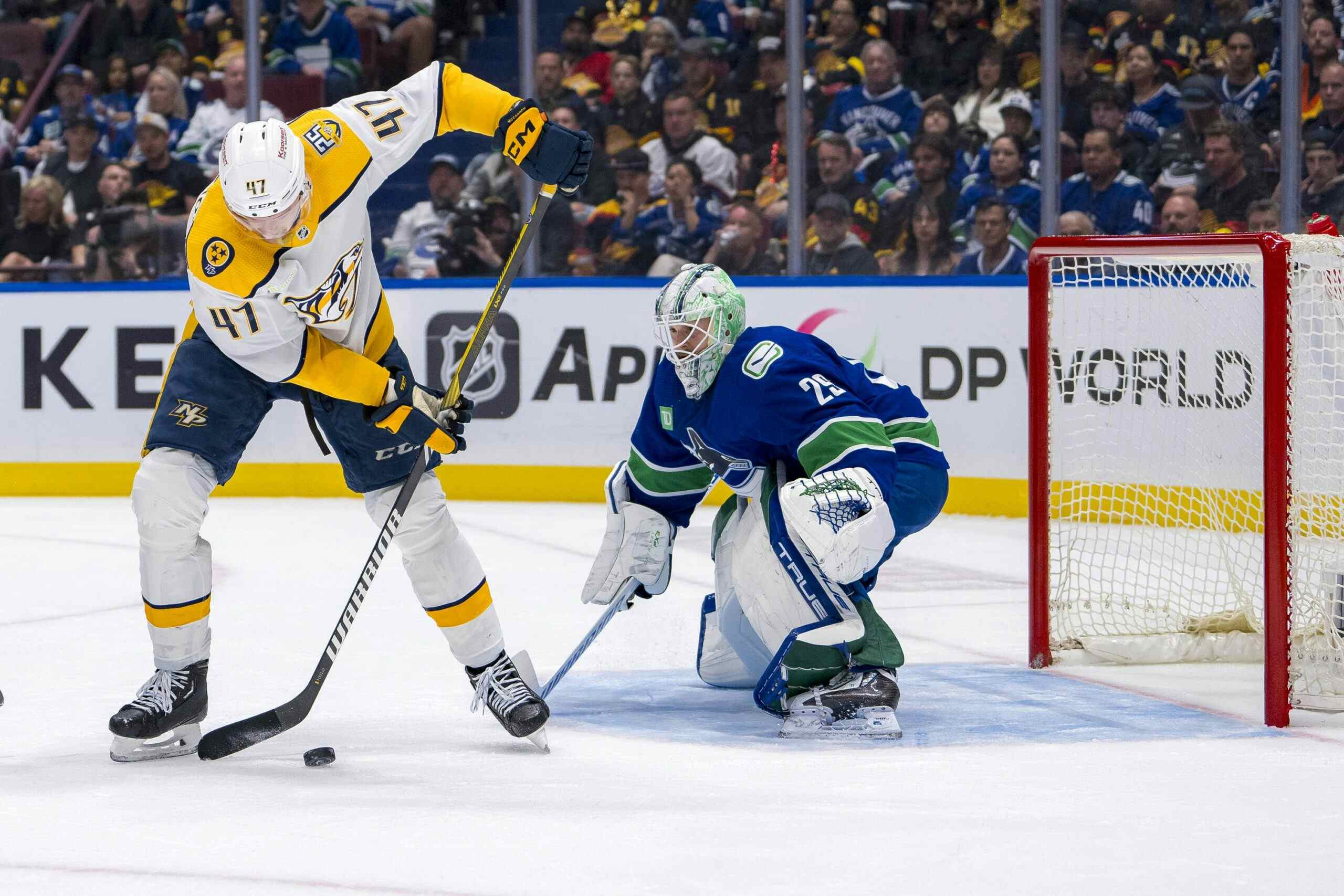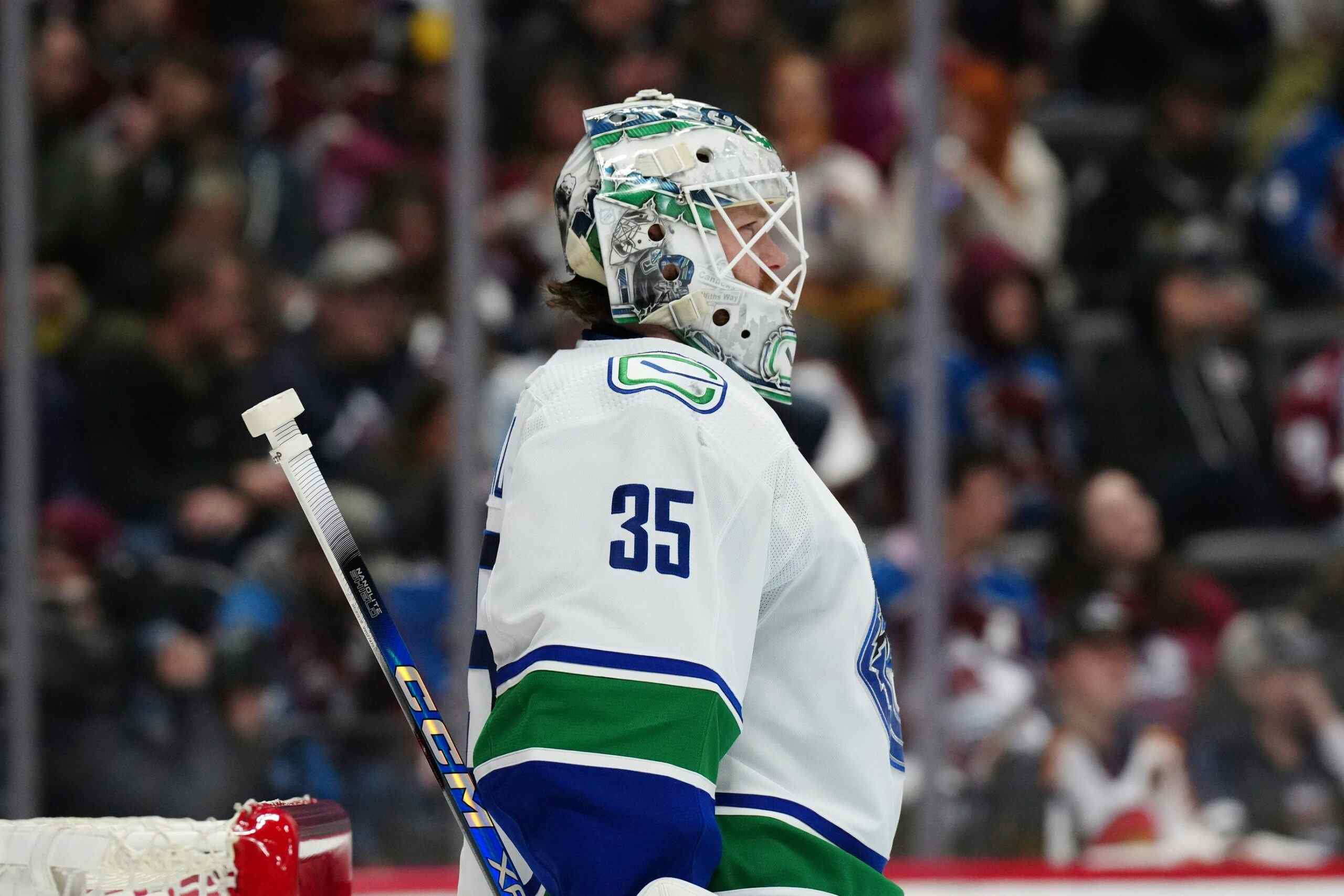The Canucks Didn’t Just Get Swept, They Got Swept Ironically

Photograph by: Marcio Jose Sanchez
To call the refereeing in Vancouver’s first round series sweep at the hands of the San Jose Sharks "controversial" might be putting it too mildly. When Kelly Sutherland is involved, and when you watch the calls that went against the Canucks in the 2013 playoffs, it’s tough not to get your conspiracy theory wheels spinning.
The Sharks enjoyed fourteen more power-play opportunities in the first round sweep than the Canucks did. Compounding the unbalanced number of power-play opportunities is the fact that game four was ultimately decided on a couple of power-play goal resulting directly from very iffy calls. I’m not one for blaming the referees especially not in a sweep, as tempting as it is after the way game four played out. Penalties are like bounces and it’s too easy to read something sinister into the randomness. But there is an irony here that is worth getting into after the jump.
What’s that irony? The irony is that over the past couple of years power-play opportunities have declined precipitously in both the regular season and the postseason. Tony Gallagher, for example, believes that you can point to the penalty-less game seven between the Tampa Bay Lightning and the Boston Bruins as the day the game changed in this respect (I’m not convinced by this necessarily since the decline in power-play opportunities league wide has been a longer term trend, but it’s worth noting I figure).
Over the past few years the Canucks have jettisoned offensive talent in the likes of Christian Ehrhoff, Cody Hodgson, and Mikael Samuelsson in favour of more banging-type two-way pieces in Jason Garrison, Zack Kassian and David Booth. Before that Boston series, for example, the Canucks seemed to prioritize skill at the draft table. Since 2011 they’ve drafted almost uniformly big forwards.
I don’t think it’s a stretch to argue that Mike Gillis looked at the way the game was being played, read the tea leaves, and decided that his club needed to be better, bigger and tougher to play against at five-on-five. If that came at the expense of some offense, and some power-play offense in particular, so be it.
So the Canucks spend two or three seasons remaking their club more in the image of Dave Tippet’s Coyotes, Claude Julien’s Bruins, Dean Lombardi’s Kings and Ken Hitchcock’s St. Louis Blues. They put together arguably their best five-on-five team during the Vigneault/Gillis era this season. The Canucks stop "blowing the zone" so aggressively in the defensive end preferring to have forwards collapse low, and the Sedins make a concerted (and successful) effort to improve their two-way play, even at the expense of some of their offensive firepower.
So, of course, the way this plays out is that the Canucks end up getting swept in a series in which the team they played against averaged six power-play opportunities per game. Maybe it was the team’s reputation catching up to them, not that it makes this any better.
Ultimately the Sharks on the power-play outscored the Canucks at even-strength with seven goals to six. Meanwhile the Canucks controlled play – if not the scoring chance battle – at even-strength throughout the series. But it just didn’t matter because this was a series that was decided on special teams.
Which is pretty ironic considering the way the 2011 Stanley Cup Final was officiated, or the way the calls went in the entirety of the postseason in 2012. Don’t ya think?
Recent articles from Thomas Drance





